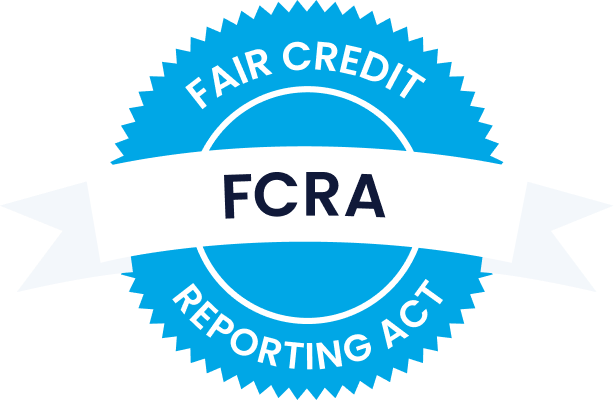Are you planning to raise your rent in Nunavut in 2025? If so, you’ll first want to get acquainted with the region’s residential tenancy laws. As a landlord, you’re responsible for following all Nunavut’s Residential Tenancies Act regulations, including those that pertain to rent increases.
In this guide, we’ll explain everything you need to know about Nunavut’s rent increase laws, including how much you can raise your price, how to notify tenants, and how to settle a dispute with a tenant who refuses to pay your new fee.
2025 updates to Nunavut rent increase guidelines
There’s no law in Nunavut that restricts how high landlords can raise their rent. As a result, you can legally increase your price to whatever amount you deem fit on a rental property in 2025.
That being said, there are regulations that restrict how often you can raise your price. Per the RTA, you’re allowed only one rent increase every 12 months. More specifically, you can raise your rent 12 months after:
- The last legal rent increase
- The start date of the tenancy
In addition, you must inform your tenant in writing of a rent increase at least three months before it takes effect. If you miss this deadline, your tenant can dispute your new price by applying with the Residential Tenancies Office. Most likely, they’ll be entitled to a refund of the excess rent paid.
Your tenant can treat a rent increase notice as a lease termination notice. If that’s the case, they must advise you of their intention to do so in writing and move out of the property on the day immediately before your new rent fee applies.
When you sign a lease with a replacement tenant, you must provide them with the notice intended for the old tenant and charge them rent at the increased rate.
The rules for implementing a rent increase in Nunavut described above apply to fixed-term and month-to-month leases.
How to raise rent in Nunavut: step-by-step process
Below are the steps for raising the rent price for an Alberta rental property in 2025, both for fixed-term and month-to-month leases.
Step 1: Determine your new rent price
Begin by figuring out your deal rent price. While this may seem easy, it requires careful thought and a bit of number crunching. You need to choose an amount that’ll allow you to earn a decent profit on the property while still being attractive to tenants.
At the very least, your new rent fee needs to be high enough to cover your operating expenses, so tally up your total cost during the past year to see how much you’ve spent. Be sure to account for any renovations you’ve done, too, so you can recoup your investment.
It’s also critical to evaluate the state of the rental market where your property is located. How strong is the demand for rental units? Is the average monthly rate for rental units similar to yours rising or falling, and if so, how much? Your new rent fee should allow you to stay competitive locally and attract quality renters.
Step 2: Prepare the notice of rent increase
In Nunavut, you must inform your tenant of a rent increase to your tenant in writing ahead of time.
Unlike many regions in Canada, there’s no government-approved form you need to use to create your notice. As long as it’s in writing and indicates the amount of the rent increase and the date it takes effect, it’s valid under Nunavut law.
Still, it’s prudent to incorporate some other details the tenant would expect to see, including:
- Your name and contact information
- The address of the rental unit
- The current rent amount
- Your signature and the date you created the notice
In addition, it’s worth explaining the reasons for the rent increase so that your tenant understands why they’ll have to pay more in the new year. You can include details like a breakdown of the rise in operating costs, remodeling work you’ve performed, and examples of rental properties in the area with comparable rates.
Step 3: Notify your tenant of the rent increase
Once you’ve prepared your notice, the next step is to send it to your tenant. By law, your tenant must receive a rent increase notice at least three months before your new rent fee kicks in.
How you deliver your message is up to you—email, in-person delivery, and registered mail are all good options. What’s important is it reaches your tenant before the three-month deadline expires; otherwise, the rent increase is considered illegal, which means they don’t have to pay it.
Resolving issues about rent control
Let’s assume a dispute arises between you and your tenant, who refuses to pay your increased rent fee. In that case, you can ask the Residential Tenancies Office to help resolve it.
The Residential Tenancies Office will appoint a Rental Officer to hear your case and help you negotiate an agreement with your tenant. Should this effort fail to achieve a solution, the Rental Officer will arrange a hearing to assess the evidence further and issue a judgment. The judgment is legally enforceable under Nunavut law.
Suppose you disagree with the decision made by the Rental Officer. In that case, you can appeal to the Court of Justice, provided you do so within 14 days of receiving it.
To begin the dispute resolution process, fill out and submit the form Landlord’s Application to a Rental Officer.
Our final thoughts
In Nunavut, you have maximum flexibility when raising your rent in 2025. The region has no rent control legislation, so you can adjust your price to whatever amount you wish.
However, you can increase your rent only once per 12-month period, and you must provide your tenant with at least three months’ notice. If you fail to abide by these two rules, your tenant can dispute the rent increase through Nunavut’s Residential Tenancies Office.
For further details about Nunavut’s rent increase regulations, visit the Government of Nunavut website.





